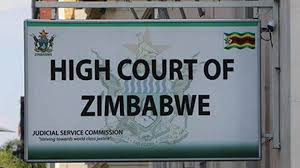
BY JAIROS SAUNYAMA
Thirteen-year-old Tinotenda Rambanepasi is uncertain about her future prospects.
For a year she has been moving from village to village doing menial jobs to fend for her two siblings as well as her ailing grandmother.
Tinotenda dropped out of school in rural Wedza due to harsh economic challenges which eroded her grandmother’s pension, their only source of income.
“I had to drop out of school because my grandmother’s meagre pension benefits cannot sustain us. I did not sit for the Grade 7 examinations and for us to survive I have to do odd jobs in this area to supplement what we have,” she said.
Tinotenda represents a number of children, especially in the rural areas of Zimbabwe who have become victims of a turbulent economy that has seen most of them dropping out of school while others have attained bad results.
The country is currently experiencing the worst economic crisis in a decade with most families surviving on meagre salaries.
The 2019 Zimbabwe School Examinations Council (Zimsec) Grade Seven results showed a decline in the national pass rate to 46,9% from 52,08% in 2018. Moreover, the number of candidates who wrote the examinations declined.
- Chamisa under fire over US$120K donation
- Mavhunga puts DeMbare into Chibuku quarterfinals
- Pension funds bet on Cabora Bassa oilfields
- Councils defy govt fire tender directive
Keep Reading
“The total number of candidates who sat for the 2019 Grade Seven examination was 323 207. This is a 1,06% decrease from October 2018, which was 326 685. Although the national pass rate decreased by 5,18 percentage points, a pass rate of more than 50 percent was recorded in all subjects,” Zimsec board chairperson Eddie Mwenje told journalists as he announced the coming out of the results.
Climate change effects and a series of droughts have not spared Zimbabwe, with children being the worst affected. This year, teachers labour unions have been calling for strikes while others especially in Chikomba District have been turning up for work but not executing their duties demanding a decent wage.
Progressive Teachers Union of Zimbabwe Mashonaland East provincial co-odinator Tapiwa Chengeta said the decline in Grade 7 examination results was a reflection of a bad economy that is affecting children.
“It is a true reflection of the several unresolved disputes between the employer and employees. Government needs to take the teachers’ grievances seriously. We cannot ignore reality anymore. It is time for real unconditional engagement to save the social services,” he said.
Government has been on record blaming climate change and droughts for affecting the economy.
According to the Zimbabwe National Statistics Agency, at least seven million people are in dire need of food assistance with 5,5 million of the affected people living in rural areas. A total of 88 schools, mainly in Matabeleland North and South provinces, recorded a 0% pass rate.
Parliamentarian Priscilla Misihairambwi-Mushonga, in view of this sad scenario, demanded an explanation from Primary and Secondary minister Cain Mathema.
Amalgamated Rural Teachers Union of Zimbabwe president Obert Masaraure said besides the standoff between government and teachers, there were no learning resources in schools.
“We note with concern that if the tributaries to the performance drop are left unattended, we will compromise the whole Zimbabwean education quality standards. There are a number of factors contributing to the emerging pass rate trends such as the socio-economic crisis, teachers’ incapacitation and the deficiency in preliminary learning resources,” he said.
“Austerity measures have resulted in a significant fraction of Zimbabwean learners attending school without exercise books and proper school uniforms not mentioning their empty stomachs. The situation automatically affects learners psychologically which will in turn affect learning negatively.”
The children are being taught by teachers who have turned to vending and cross-border trading to keep body and soul together.
Recently, during the 16-days of Activism Against Gender-Based Violence, police officers from the Victim Friendly Unit in Marondera revealed that young girls were falling prey to pirate taxi drivers who lure them with money in return for sexual favours.
There has been a surge in cases of child prostitution in Hopley and Epworth.
Educational Coalition of Zimbabwe national co-ordinator Liberty Matsive said despite demotivated teaching staff, lack of teaching materials and infrastructure could not be ruled out as catalysts of the downward spiral of the education system in Zimbabwe.
“Lack of teaching and learning materials also affects learning outcomes. The competence-based curriculum introduced new learning areas which require huge financial allocations for them to be effectively implemented. The issue of infrastructure cannot be spared. We have inadequate infrastructure in our schools which affects the learning process,” he said.
According to 2015 Education Sector Analysis report, Zimbabwe has a shortfall of 2056 schools.
It seems there is no hope for young Tinotenda to be back in school anytime soon. For now, she remains the village’s most sought-after cheap labour.











